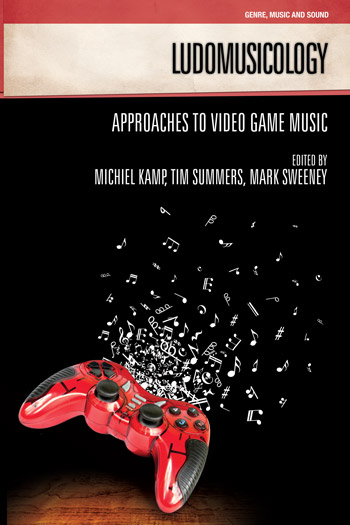“It’s a me, Mario!” – Playing With Video Game Music
Ludomusicology - Approaches to Video Game Music - Michiel Kamp
Melanie Fritsch [+]
Universität Bayreuth
Description
Since its earliest incarnations, video gaming can be seen as a form of ‘participatory culture’ (Jenkins, 1992). Besides exploring what can be done within the game itself, players also started to experiment with the soft- and hardware components, the artwork, or the narratives of games in order to create something themselves. The prompt emergence of practices like demos, remixes, chiptunes, or – of course – the creation of self-made levels or entire games is a vivid demonstration of the desire not just to play the games, but also to play with them. The same holds true for video game music. Typing, for example, “Super Mario Bros theme” into the YouTube search will deliver a huge number of videos, in which people have played this tune or recreated it in every way imaginable (see Collins 2013). Furthermore, people also use the sound and/or visual style of the Mario video games in order to create tributes, crossover music videos or their own songs. With the “Automatic Mario” series, for example, a distinct subgenre of remix videos has been created. But these forms and practises do not come out of nowhere. As José Zagal puts it: “In summary, games exist in a broader cultural context, and it is important to use this cultural context in order to help understand a game and vice versa.” (Zagal 2010, p. 28) This also applies to video game music. When people play with the sounds, the music, or create music videos, etc. they not only remix the music – they also mingle several musical and cultural practises, using their knowledge of, and competencies regarding, the several cultural contexts they deal with. After briefly surveying the field of the culture of video game music outside of video games, using the creative work which has arisen around the Super Mario games as an example case, the chapter will investigate how this activity interrelates with other musical cultures, and how such relations become manifest in the creative works people produce. “The Super Mario 8-bit Opera” by Jon and Al Kaplan and its further processing by the online community will be analyzed in the form of a case study. As a theoretical starting point, concepts of games literacy as introduced by Zagal (2010) and Zimmerman (2009), and its application to the field of game music (van Elferen, in this book) will be used.






